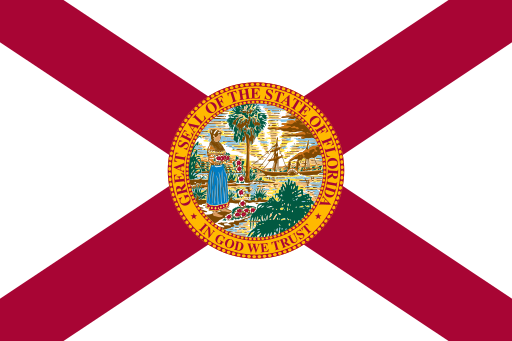The Florida State Senate gave final approval to House Joint Resolution 31, a constitutional amendment to make school board elections partisan.
School board members in Florida are elected by the voters of the county and serve four-year terms. Currently, voters elect five or more members in a nonpartisan election. Each county makes up a school district, unless two neighboring counties have voted to combine school districts.
The school board controls school property, establishes, organizes, and operates the schools of the district, including establishing schools, adopting enrollment plans, providing for school elimination and consolidation, cooperating with school boards of adjoining districts in maintaining schools, maintaining the school year schedule, and other more specific duties as outlined in Florida statutes.
The Senate voted 29-11 in favor of the bill. All 28 Republican senators voted in favor and 11 of the 12 Democratic senators voted against. Sen. Linda Stewart (D) was the only Democrat to vote in favor of the bill. The Florida House of Representatives approved HJR 31 on March 31 by a vote of 79-34 along party lines, with Republicans in favor and Democrats opposed.
Florida has a Republican trifecta. The Republican Party controls the office of the governor and both chambers of the state legislature.
State Rep. Spencer Roach (R), the sponsor of the amendment, said, “This is not about, at least for me, advancing the cause of one political party over another. But for me it’s about transparency, and I simply believe that we have an obligation to give voters as much information about a candidate as possible, and let them make a decision about vetting a candidate. I would tell folks, if they truly want to vote for nonpartisan candidates, those candidates in Florida who are NPAs that don’t have a philosophical association with either of the two major parties and they (voters) viewed them as sort of purist NPAs — right now in Florida, the law prevents you from doing that, because you don’t know who that candidate is.”
State Rep. Angie Nixon (D), said, “I believe this bill is not about transparency at all. This bill is about making our school-board elections and our school boards more contentious, more like D.C., which [Republicans] honestly always try to oppose.”
Ballotpedia analyzed state laws concerning partisan school board elections and found that in 41 states and the District of Columbia, state law requires nonpartisan elections for school boards. The law in four states—Alabama, Connecticut, Louisiana, and, with some exceptions, Pennsylvania—automatically allows partisan school board elections or party labels to appear on the ballot. These four states have a combined 878 school districts and 7,652 elected school board members. Laws in at least five states—Georgia, Rhode Island, Tennessee, North Carolina, and South Carolina—either explicitly allow for partisan or nonpartisan elections or gives local authorities enough control over elections to effectively allow the option. These five states have a combined 554 school districts and 3,342 elected school board members.
To be approved by voters, a 60% vote is required. If approved, the amendment would take effect during the 2026 school board elections.



